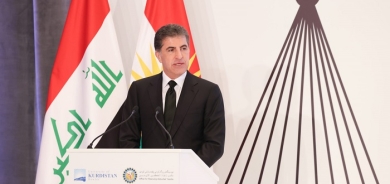Teachers go on strike in France over reforms

School reform is a sensitive subject in a country that prides itself on equal access to education, and the plan to revamp secondary teaching is opposed by a majority of citizens, the conservative opposition and even parts of the ruling left.
The plan is to give schools more leeway on what they teach, to promote inter-disciplinary learning and counter the apparent elitism that backers of the reform say poorly serves most children.
Labelled a “shipwreck for France” by one conservative deputy, the reform is being steered through by 37-year-old Education Minister Najat Vallaud-Belkacem, a Moroccan-born daughter of working class parents who is often hailed as a success story for French integration efforts.
Ex-president Nicolas Sarkozy, now head of the opposition UMP, said with regard to the reforms that Vallaud-Belkacem was an icon of the Socialist government’s “unrelenting quest for mediocrity”.
Greek, Latin in firing line
Traditionalists are upset by plans to reduce the number of hours pupils spend studying Greek and Latin, as well as to scrap an option allowing a minority of the most gifted children to take on two foreign languages aged 11, thus freeing up resources so that all can do so from the age of 12.
Berlin has also expressed concerns the reforms will lead to fewer French school children learning German, with the country’s ambassador to France, Suzanne Wasum-Rainer, even meeting with Vallaud-Belkacem in April to discuss the matter.
Some teachers have also argued that these changes will push middle-class parents to send their children to semi-private schools – further entrenching segregation between rich and poor in the education system rather than diminish it.
Equally, if not more infuriating for many, particularly on the right, are separate reforms to the teaching of history in French schools.
The changes are will allow teachers to choose between a number of optional topics to teach alongside obligatory modules.
Critics are unhappy over which topics have made the list of compulsory modules, saying, for example, they favour the teaching of the history of Islam over Christianity and emphasise negative aspects of French cultural heritage – such as slavery and colonialism – over more positive ones.
Vallaud-Belkacem has hit back, calling some of her critics “pseudo-intellectuals” – a serious insult in France.
Teachers fear rising inequality
The opposition to the reforms by the largely left-wing teachers’ unions, meanwhile, has centered mainly on changes that will give each high school the leeway to determine 20 percent of the curriculum independently.
Teachers fear this could actually lead to more inequality between education standards in different schools.
They are also upset by plans to introduce interdisciplinary classes that would see topics taught by theme, rather than individual subject, and by a variety of different teachers – changes they say will increase workload and create competition between teachers.
In a rare show of unity, seven teaching unions, representing 80 percent of staff, are joining Tuesday’s strike.
A petition demanding the government withdraw the bill has been signed by around 230 MPs and also backed by 20,000 members of the public.
“People are often very wary of reform in France, there is a real fear of reform,” said Eric Charbonnier, education policy analyst at the Organisation for Economic Co-operation and Development.
Few in France dispute that the school system needs reforming, however. OECD studies have shown that 15-year-old pupils’ level in mathematics dropped between 2003 and 2012, for example.
France is also the country where pupils’ performance is most closely linked with their parents’ socio-economic background and where children of immigrant descent are most likely to fail, one OECD study showed.
(FRANCE 24 with REUTERS)













